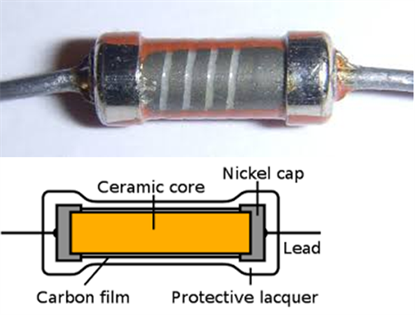What are the advantages and disadvantages of carbon resistor?
Carbon resistors are one of the most commonly used resistors in electrical and electronic circuits. They are made of a mixture of carbon particles and a binder material that is molded into a cylindrical shape. Carbon resistors have a number of advantages and disadvantages that must be considered when selecting them for a specific application. In this article, we will explore these advantages and disadvantages in detail.

Advantages of Carbon Resistors:
Low Cost: Carbon resistors are one of the most affordable types of resistors available. They are widely used in consumer electronics, hobbyist projects, and other applications that require cost-effective components.
High Stability: Carbon resistors have excellent stability over time and can maintain their resistance value for long periods of time. This is due to their low temperature coefficient of resistance, which means that their resistance value does not change significantly with changes in temperature.
Wide Resistance Range: Carbon resistors are available in a wide range of resistance values, from a few ohms to several megaohms. This makes them suitable for a wide range of applications, including voltage dividers, signal processing circuits, and power supplies.
High Voltage Rating: Carbon resistors have a high voltage rating, which allows them to withstand high voltage levels without breaking down. This makes them suitable for use in high voltage applications such as power supplies and electric motors.
Disadvantages of Carbon Resistors:
Non-precision: Carbon resistors are not as precise as other types of resistors, such as metal film or wire wound resistors. This means that their resistance value can vary by a small amount, which can affect the performance of the circuit.
Limited Temperature Range: Carbon resistors have a limited temperature range and are not suitable for use in high-temperature applications. They can become damaged or even fail when exposed to high temperatures.
Low Power Handling Capacity: Carbon resistors have a relatively low power handling capacity compared to other types of resistors. They can only handle low levels of power without overheating or breaking down.
Noise Generation: Carbon resistors can generate a small amount of electrical noise, which can affect the quality of the signal in sensitive applications. This noise is due to the random motion of the carbon particles in the resistor.
In conclusion, carbon resistors have both advantages and disadvantages that must be carefully considered when selecting them for a specific application. They are affordable, stable, and can handle high voltage levels, but they are not as precise as other types of resistors and have limited temperature and power handling capabilities. By understanding the advantages and disadvantages of carbon resistors, engineers and designers can make informed decisions about their use in circuits.
- Previous: What happens if resistor is broken?
- Next: Best Choice of Spherical Lens

